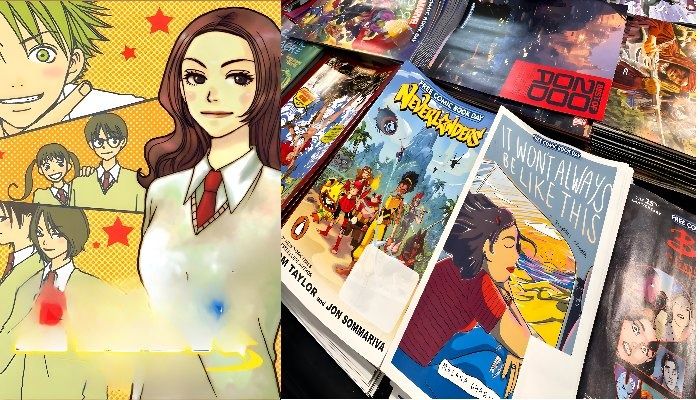Have you ever experienced the feeling of “komik hisashiburi ni jikka ni kaettara otouto ga ts shiteta”? In the rich tapestry of the Japanese language, certain phrases encapsulate complex emotions and situations. In this article, we’ll delve into the intriguing world of “komik hisashiburi ni jikka ni kaettara otouto ga ts shiteta” and unravel its layers of meaning.
Understanding “komik hisashiburi”
“Komik hisashiburi” is more than just a phrase; it’s a cultural phenomenon that signifies the joy of unexpected reunions. Whether it’s meeting a long-lost friend or reconnecting with a family member after a prolonged absence, this expression captures the essence of joyful surprises.
Exploring “jikka ni kaettara”
Now, let’s break down “jikka ni kaettara,” a phrase laden with implications. It signifies returning home, but not just physically. It implies a return to one’s roots, a metaphorical journey back to where you belong.
Unpacking “otouto ga ts shiteta”
The final piece of our linguistic puzzle is “otouto ga ts shiteta.” While it might seem straightforward, the phrase holds nuances, ranging from lighthearted teasing to genuine affection. It’s the sibling dynamic encapsulated in a few words.
Cultural Context
Understanding these phrases goes beyond mere translation; it requires delving into the cultural nuances of Japan. Different regions might interpret these expressions with varying degrees of intensity, adding layers to their meaning.
Real-life Experiences
Let’s connect on a personal level. Picture a scenario where “komik hisashiburi ni jikka ni kaettara otouto ga ts shiteta” played out in your life. Share your experiences and let the warmth of relatability bring our exploration to life.
Language Dynamics
Japanese, as a language, evolves with societal changes. Explore the linguistic aspects that contribute to the depth of these expressions, and discover how language can be a mirror reflecting the cultural shifts of a society.
Misinterpretations and Misconceptions
In our journey, we may encounter misinterpretations. Let’s clarify common errors, ensuring a more accurate understanding of these phrases and their intended sentiments.
Impact on Relationships
How do these phrases impact relationships, especially within families? Dive into the subtle ways language shapes our connections and influences our interactions.
Navigating Cultural Sensitivity
As we explore these linguistic treasures, let’s navigate the delicate balance of cultural sensitivity. Learn how to use and respond to such expressions with awareness and respect.
Language Learning Perspective
Language learning becomes richer when infused with cultural context. Discover how exploring expressions like “komik hisashiburi ni jikka ni kaettara otouto ga ts shiteta” enhances your understanding of Japanese.
Pop Culture References
Explore the resonance of these phrases in popular culture. From movies to books, find instances where these expressions have left an indelible mark on storytelling.
Evolving Language Trends
Language is a living entity that adapts to the times. Discover if there are modern adaptations or variations of “komik hisashiburi ni jikka ni kaettara otouto ga ts shiteta” in contemporary usage.
Reader Engagement
The conversation doesn’t end here. Share your thoughts, interpretations, and experiences in the comments. Let’s build a community where language and culture thrive through shared stories.
Conclusion
In the tapestry of language, phrases like “komik hisashiburi ni jikka ni kaettara otouto ga ts shiteta” add vibrancy and depth. As we wrap up our journey, remember that language is more than words; it’s a reflection of shared experiences and cultural richness.
